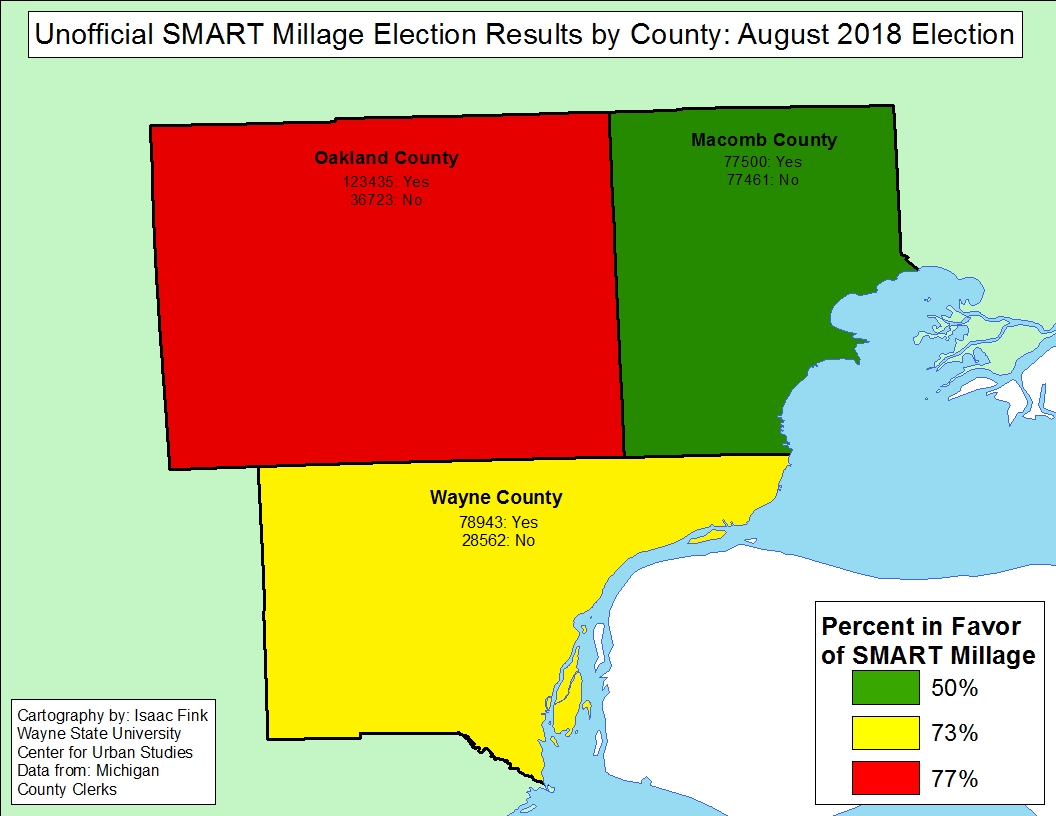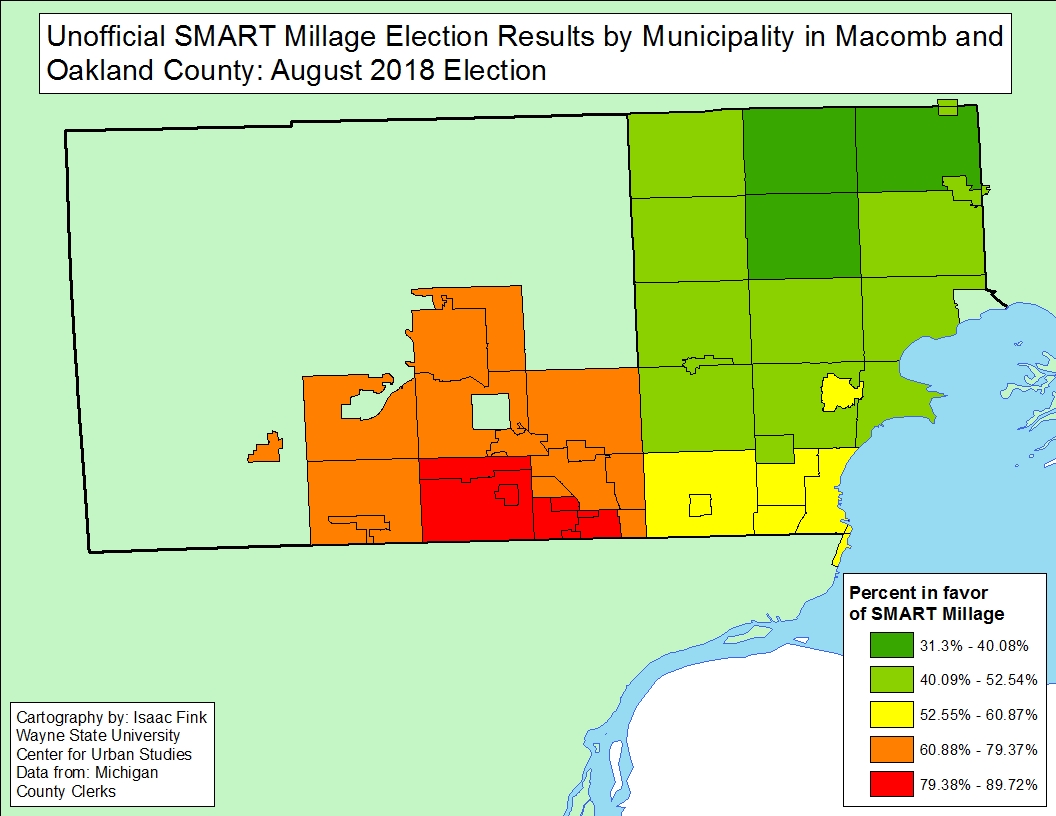The Suburban Mobility Authority For Regional Transportation (SMART) received a vote of confidence from the tri-county region for its four-year 1 mill millage renewal, which was also a slight increase for communities in Macomb and Oakland counties (the increase request was due to Headlee amendment rollbacks in previous years that brought original 1 mill rate slightly below that). However, even though election results show the SMART millage passed in Macomb County and in areas of Oakland and Wayne counties on Aug. 7, 2018, there were questions if that was really the case. In mid-August the Michigan Taxpayers Alliance requested a partial recount of the Macomb County SMART millage vote because the millage proposal only passed by 39 votes. According to the election results, 77,500 Macomb County voters were in favor of the millage renewal and increase and 77,461 Macomb County voters cast a ballot against the proposal. With a 50 percent passage rate, the group felt a recount was needed to ensure the results were accurate. On Aug. 29 the group stopped the partial recount because it became evident that there would not be enough “no” votes to overturn the originally approved millage approval, according to a Michigan Radio news article.
In Wayne County the SMART millage had a 73 percent passage rate, with 78,943 of the voters in favor of the millage renewal and slight increase. Oakland County had the highest pass rate at 77 percent, with 123,435 of the voters in favor of the proposal and 36,723 of the voters voting against it.
SMART, which is the region’s only existing transportation system outside of the Detroit Department of Transportation’ system, was created in 1967. As is evident by the maps above, the system operates throughout the tri-county region, but not necessarily in every community. Due to the way SMART initiatives can be placed on the county ballots (by individual counties), Macomb County is the only county in which the entire county (50 percent or more) must support a SMART millage in order for it to approved. This is why such a close approval rate for the Aug. 7 millage, and the potential of a recall, were vital for Macomb County, it’s either all or nothing. Unlike Macomb County, Oakland and Wayne counties communities have the option to “opt-out” of supporting the authority. In the second map above, data on approval rates for all Macomb County communities is available, and only partial information is available for Oakland County communities. For the Oakland County communities, these are the “opt-in” communities that approved the SMART proposal.
No data was available for the Wayne County communities through the Wayne County Election’s Office website; the only information available was the pass/fail rate for the millage proposal for the whole county.
In Macomb County, the cities of Grosse Pointe Shores and Eastpointe had the highest passage rates at 61 percent. Ray Township had the lowest approval rate at 31 percent, according to the results. As noted, all the Oakland County communities on the second map above had approval rates above 50 percent, because they “opted in” to use the SMART service. Of those communities, Huntington Woods had the highest approval rate at 90 percent and Walled Lake had the lowest at 70 percent.
While SMART continues to be the only regional transit authority in Southeastern Michigan, this recent election confirms again that the region has a lot of room to grow in providing equal and equitable transportation services throughout the region. If Macomb County voters did not pass the millage request, public transportation in the county would likely have ceased to exist. And, in many parts throughout Oakland and Wayne counties transportation gaps are huge.

